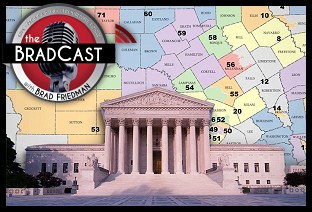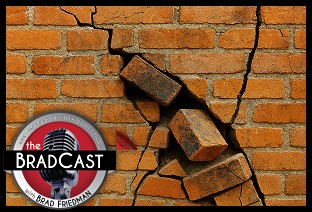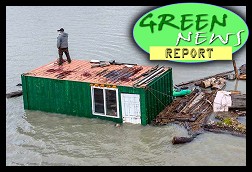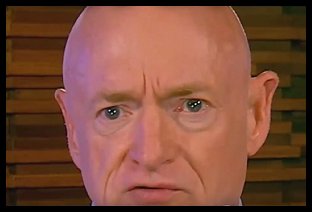 The Green Party's candidate for California Secretary of State this year is a strong proponent of Internet Voting. David Curtis, who was also the Green's 2010 candidate for Governor in Nevada, is now running to replace CA's term-limited Democratic Sec. of State Debra Bowen and he's staking out a position that contradicts computer scientists and security experts who warn that online voting cannot be done securely.
The Green Party's candidate for California Secretary of State this year is a strong proponent of Internet Voting. David Curtis, who was also the Green's 2010 candidate for Governor in Nevada, is now running to replace CA's term-limited Democratic Sec. of State Debra Bowen and he's staking out a position that contradicts computer scientists and security experts who warn that online voting cannot be done securely.
Recently, I had a "conversation" with Curtis on Twitter about his advocacy for Internet Voting, after Steven Dorst, an election integrity advocate who follows The BRAD BLOG on Twitter, responded to a tweet of Curtis' declaring his support for an optional "online method of voting".
My enlightening conversation with Curtis follows in full below.
The BRAD BLOG has long been on record documenting the many dangers of Internet elections. While the ease of hacking such elections is certainly a major concern (among many others), the over-arching problem with Internet Voting is that, after voting is complete, it is 100% impossible for citizens to oversee their own election results in order to determine that any vote has been tallied as per any voter's intent.
As with electronic touch-screen voting, which is 100% unverifiable in any form, even when done securely --- if there is even a way to measure such things (and virtually all computer security experts have told us for years that there isn't) --- Internet Voting can never been done in such a way that the citizenry can know that its been done securely. Thus, no matter how "secure", Internet Voting is ultimately a threat to confidence in elections and, along with it, representative democracy in the U.S.
Nonetheless, Curtis, like at least one other candidate in this year's SoS race in California, disagrees. He strongly advocates in favor of Internet Voting...
Curtis suggested, during our conversation on Twitter, that voting online can be both "secure and verifiable" with votes printed out onto PDFs or "other paper-like substance" and by allowing individual voters to check a database with a Personal Identification Number (PIN) after an election to see if their own vote was recorded accurately. That option presents a number of problems, such as the possibility of buying and selling votes, as I mentioned during the conversation. More importantly, it misses the point that an electronic database available to a voter can show the voter one thing, while the actual recorded and reported result can be entirely different. Unless every single Internet Voter in the state checks their results and then reports it publicly somehow (thus, violating their right to a secret ballot), such a method of "verifying" ones own personal vote offers no way for all voters to know that all electronic votes were accurately recorded and counted as cast.
The Green Party candidate is not alone among California Secretary of State candidates in advocating for Internet Voting. Democratic candidate and state Sen. Leland Yee, voiced strong support for Internet Voting upon declaring his candidacy, though he has largely (or, at least, publicly) backed off his advocacy after being informed of the many concerns about IV from computer science, security and e-voting experts.
Democratic candidate and state Senator Alex Padilla, believed to be the front-running among the pack of SoS candidates to date, has not explicitly endorsed Internet Voting schemes to my knowledge. Though, as we reported last year, Padilla has been less than forthright concerning his advocacy for unverifiable electronic voting systems. He misleadingly shepherded a radical new election reform bill (SB 360) into law last year which ended the long-standing requirement for federal testing of new e-voting systems in California and granted unprecedented power to the Secretary of State to approve new e-voting systems for use in "a legally binding election" even without testing by state authorities either.
Among the leading Democratic candidates, only former Common Cause official Derek Cressman has avoided vocal support for Internet Voting or other electronic voting tabulation schemes, focusing his candidacy instead largely on campaign finance reform and related government transparency issues in the wake of Citizens United.
On the Republican side, neither Pete Peterson nor Dan Schnur, a former GOP strategist and spokesperson who is running this year as an independent, are on record in regard to Internet Voting at all, to my knowledge.
Thanks to California's new "Top Two" primary system, the two leading vote-getters from any party --- including from the same party --- during this year's statewide primary on June 3rd, will go on to face each other in the General Election this November.
My Twitter conversation about Internet Voting with the Green Party's Curtis --- and with Dorst, who helped kick off the discussion --- follows below.
PLEASE NOTE that each remark is not always directly responsive to the one before it, since the conversation went off in several different directions at a time, as various tweets were replied to even as comments were made in regard to a different response, etc. It's impossible to perfectly translate that "three-dimensional" conversation into an absolutely linear narrative here, but I have tried to order the conversation below with as much accurate context as possible. Moreover, to make the conversation a bit easier to follow, I've taken the liberty of lightly editing some of the tweets to remove necessary Twitter abbreviations and/or to clarify what each person was responding to. The original tweets, in any case, are each linked along with each remark. Any misleading ordering or edits are unintentional and would be solely my fault, where and if they exist.
DAVID CURTIS: I support multiple modes of voting. I would support an (optional) online method of voting that is secure and verifiable.
STEVEN DORST: And there's the rub. I have grave doubts that online voting can ever be both secure AND verifiable. And Auditable. And Recountable.
CURTIS: I think it can be done, we can set up voter accounts with PINs. Just like a credit union account.
DORST: That doesn't address the Auditable or Recountable criteria. And if I vote that way, how can I know my vote was counted as I intended?
DORST: Check out @TheBradBlog. He's convinced me that paper ballots, marked by hand & counted in public, in precinct, is necessary.
CURTIS: Your account would show your votes 24/7. The SOS database would report from the accounts.
BRAD FRIEDMAN: Nice. So I could buy or sell my votes 24/7 under that plan as well?
CURTIS: No, but you could save the 30 minutes in line. SO there would be a "savings".
FRIEDMAN: If my vote is "verifiable" online, what stops me from selling it? OR showing it to my boss so I don't get fired?
CURTIS: Selling it to whom?
FRIEDMAN: I can offer $ to folks who can prove they vote how I wanted them to. I can beat my wife if she doesn't.
DORST: And if your vote is anonymized to allow recounts, how do you verify it was anonymized correctly?
CURTIS: Same way the credit unions do it, partial account number of receipt, or could be random generated code id.
CURTIS: Paper would still be an option, online voting would be an optional mode, like with registration.
FRIEDMAN: So only SOME votes would be 100% unverifiable then?
CURTIS: Do you bank online?
CURTIS: Is the money in your credit union verifiable or unverifiable?
FRIEDMAN: Sounds like you haven't studied elections enough to understand the difference between banking and voting. Secret ballot makes voting totally different.
FRIEDMAN: Online banking is totally different. All transactions are 100% overseeable forever by all parties. Secret ballots are totally different entities.
[For more details on this point than I was able to make in 140 characters, please see Dr. David Jefferson's "If I can shop and bank online, why can't I vote online?" (PDF). Jefferson is a computer scientist at Livermore National Laboratory, as well as the Chairman of the Verified Voting Foundation and a longtime voting systems adviser to both Republican and Democratic California Secretaries of State.]
CURTIS: In order to have an online transaction an alternate mode would be required.
CURTIS: The blocks to online voting are based on current statutes, and would have to be modified to allow online voting.
CURTIS: If an online vote was created it would have an opt in that included new statutory language.
FRIEDMAN: There are reasons (good ones!) for the statutes you want to change. Among them: Security, Overseeability, Buying/Selling votes.
CURTIS: The existing modes of voting stay, it would be an additional optional mode.
FRIEDMAN: "Optional mode" for whom? Do I get the option of deciding whether 100% unverifiable votes are cast my election??
CURTIS: If a voter opts in and it is viewable only by them via PIN, it is not equal to being viewable by everyone.
FRIEDMAN: So when I "opt in" and my boss requires I show him how I voted, what's your plan for that intimidation?
FRIEDMAN: When I, as a citizen, want to oversee the tally, how can I EVER know that any online vote was registered as cast?
CURTIS: Secret code, like when grades are posted publicly.
CURTIS: The SOS [Secretary of State] would have the tally just like now.
FRIEDMAN: "The SOS would have the tally just like now" --- The SoS doesn't "have the tally". It's tallied locally and sent to the SoS. Who counts the BALLOTS in your plan for Internet voting?
DORST: Moreover, how do you REcount the (nonexistent) ballots?
CURTIS: It would be a database, with a back up.
DORST: A database only allows the election to be re-tallied, not re-counted.
CURTIS: The transaction would generate a PDF (or other paper-like substance.)
FRIEDMAN: Please speak to ANY of the EXPERTS in Internet Voting so they can explain the MYRIAD reaons we don't/shouldn't/can't do it.
CURTIS: Online voting would also address accessibility issues.
FRIEDMAN: What "accessibility issues" are you referring to?
CURTIS: I did an online vote for the CC [Green Party Central Committee] in Nevada.
FRIEDMAN: What do you man, "did an online vote"?
CURTIS: I facilitated an e-vote for the Green Party of Nevada. They elected their executive council, online, with Ranked Choice Voting.
[Ed Note: I didn't even respond to Curtis' reference to Ranked Choice Voting (RCV) --- also sometimes known as Instant Runoff Voting (IRV) --- which is something long supported by the Green Party, despite the legendary complications it presents to citizen oversight of vote counting. When applied to actual public elections it makes it virtually impossible for precinct-based counting to take place, since it usually requires several rounds of counting to take into consideration the voters' 1st choice, 2nd choice, etc. for candidates. The tallying process is also very difficult for both voters and candidates to even understand, much less oversee, which is why many RCV/IRV tallying schemes have been abandoned in localities after they have tried to use them. The Green Party and other "third-parties" often support RCV/IRV under the generally well-intentioned (if arguably misguided) belief that it allows for such parties to have a better shot at breaking the two-party duopoly that exists in most U.S. localities. It was for that reason that, years ago, we supported the general notion of IRV, until investigating further and discovering all of the complications and dangers, only some of which I mentioned above, that go with it.]
CURTIS: The e-transactions were printed to PDF, so we could do a recount if necessary.
FRIEDMAN: PDFs are not ballots nor verifiable by voters. Please talk to some e-voting experts and/or read CA Sec. of State Debra Bowen's "Top-to-Bottom" review of state e-voting systems. [Ed note: A 2007 state-sponsored study by world-class computer science and security experts that uncovered innumerable and gaping security issues and flaws in every single e-voting system and computer vote tabulation system used in the state, leading to the decertification of many of those systems in California and elsewhere.]
CURTIS: Will do. Perhaps what I am not making clear is this mode would require statute language and tech that is not in place.
FRIEDMAN: No. That was clear. But a VERIFIABLE Internet election also involves TECH that doesn't exist, unless you've got a secret.

CURTIS: People like to say "no".
FRIEDMAN: By "people", do you mean world class computer science, security and Internet Voting experts??
FRIEDMAN: Or by "people" do you mean voters who would like to be able to oversee their own elections?
CURTIS: All the people of earth, they like free speech.
FRIEDMAN: Again, the problem is that ALL citizens need to be able to verify and oversee ALL votes, ballots and results in an election. They can't do that with Internet Voting.
DORST: Sounds like you should invite @dc_us [David Curtis] to be a guest on The BradCast --- WELL before the [June 3, 2014] CA SoS primary!
FRIEDMAN: Would love to discuss having David on the show.
CURTIS: Great, thank you. I would appear on your show.
FRIEDMAN: Great. We'll try to make that happen in the coming weeks, if possible.


 SCOTUS Ruling a How-To for Unlawful Gerrymandering on 'Eve' of Critical Election Year: BradCast' 12/17/25
SCOTUS Ruling a How-To for Unlawful Gerrymandering on 'Eve' of Critical Election Year: BradCast' 12/17/25 Bricks in the Wall:
Bricks in the Wall: 'Green News Report' 12/16/25
'Green News Report' 12/16/25
 'This One Goes to 11': Weekend of Violence, Tragic Murder of Rob Reiner: 'BradCast' 12/15
'This One Goes to 11': Weekend of Violence, Tragic Murder of Rob Reiner: 'BradCast' 12/15 Sunday 'WTF?' Toons
Sunday 'WTF?' Toons Trump Now Losing One
Trump Now Losing One 'Green News Report' 12/11/25
'Green News Report' 12/11/25 Dems Continue Stunning 2025 Election Streak: 'BradCast' 12/10/25
Dems Continue Stunning 2025 Election Streak: 'BradCast' 12/10/25 Petrostates and Propagandists Undermining Climate Science: 'BradCast' 12/9/25
Petrostates and Propagandists Undermining Climate Science: 'BradCast' 12/9/25 'Green News Report' 12/9/25
'Green News Report' 12/9/25 The High Cost of Trump's Terrible Policy Making: 'BradCast' 12/8/25
The High Cost of Trump's Terrible Policy Making: 'BradCast' 12/8/25 Sunday 'All in a Day's Work' Toons
Sunday 'All in a Day's Work' Toons Dems Fight to Avoid the GOP's Massive, Year-End Health Care Cliff: 'BradCast' 12/4/25
Dems Fight to Avoid the GOP's Massive, Year-End Health Care Cliff: 'BradCast' 12/4/25 'Green News Report' 12/4/25
'Green News Report' 12/4/25 A 'Flashing Red Warning Sign' for GOP: 'BradCast' 12/3/25
A 'Flashing Red Warning Sign' for GOP: 'BradCast' 12/3/25 Hegseth, War Crimes and DoD's 'Politicization Death Spiral': 'BradCast' 12/2/25
Hegseth, War Crimes and DoD's 'Politicization Death Spiral': 'BradCast' 12/2/25 Follow the
Follow the  With Thanks, No Kings and Good Cheer
With Thanks, No Kings and Good Cheer Presidential Illegality and Duty to Disobey
Presidential Illegality and Duty to Disobey President of United States Calls for Killing Democratic Officials: 'BradCast' 11/20/25
President of United States Calls for Killing Democratic Officials: 'BradCast' 11/20/25 Is MAGA Finally Beginning to Fall Apart?: 'BradCast' 11/19/25
Is MAGA Finally Beginning to Fall Apart?: 'BradCast' 11/19/25 Trump's Terrible, Horrible, No Good, Very Bad Week: 'BradCast' 11/18/25
Trump's Terrible, Horrible, No Good, Very Bad Week: 'BradCast' 11/18/25
 VA GOP VOTER REG FRAUDSTER OFF HOOK
VA GOP VOTER REG FRAUDSTER OFF HOOK Criminal GOP Voter Registration Fraud Probe Expanding in VA
Criminal GOP Voter Registration Fraud Probe Expanding in VA DOJ PROBE SOUGHT AFTER VA ARREST
DOJ PROBE SOUGHT AFTER VA ARREST Arrest in VA: GOP Voter Reg Scandal Widens
Arrest in VA: GOP Voter Reg Scandal Widens ALL TOGETHER: ROVE, SPROUL, KOCHS, RNC
ALL TOGETHER: ROVE, SPROUL, KOCHS, RNC LATimes: RNC's 'Fired' Sproul Working for Repubs in 'as Many as 30 States'
LATimes: RNC's 'Fired' Sproul Working for Repubs in 'as Many as 30 States' 'Fired' Sproul Group 'Cloned', Still Working for Republicans in At Least 10 States
'Fired' Sproul Group 'Cloned', Still Working for Republicans in At Least 10 States FINALLY: FOX ON GOP REG FRAUD SCANDAL
FINALLY: FOX ON GOP REG FRAUD SCANDAL COLORADO FOLLOWS FLORIDA WITH GOP CRIMINAL INVESTIGATION
COLORADO FOLLOWS FLORIDA WITH GOP CRIMINAL INVESTIGATION CRIMINAL PROBE LAUNCHED INTO GOP VOTER REGISTRATION FRAUD SCANDAL IN FL
CRIMINAL PROBE LAUNCHED INTO GOP VOTER REGISTRATION FRAUD SCANDAL IN FL Brad Breaks PA Photo ID & GOP Registration Fraud Scandal News on Hartmann TV
Brad Breaks PA Photo ID & GOP Registration Fraud Scandal News on Hartmann TV  CAUGHT ON TAPE: COORDINATED NATIONWIDE GOP VOTER REG SCAM
CAUGHT ON TAPE: COORDINATED NATIONWIDE GOP VOTER REG SCAM CRIMINAL ELECTION FRAUD COMPLAINT FILED AGAINST GOP 'FRAUD' FIRM
CRIMINAL ELECTION FRAUD COMPLAINT FILED AGAINST GOP 'FRAUD' FIRM RICK SCOTT GETS ROLLED IN GOP REGISTRATION FRAUD SCANDAL
RICK SCOTT GETS ROLLED IN GOP REGISTRATION FRAUD SCANDAL VIDEO: Brad Breaks GOP Reg Fraud Scandal on Hartmann TV
VIDEO: Brad Breaks GOP Reg Fraud Scandal on Hartmann TV RNC FIRES NATIONAL VOTER REGISTRATION FIRM FOR FRAUD
RNC FIRES NATIONAL VOTER REGISTRATION FIRM FOR FRAUD EXCLUSIVE: Intvw w/ FL Official Who First Discovered GOP Reg Fraud
EXCLUSIVE: Intvw w/ FL Official Who First Discovered GOP Reg Fraud GOP REGISTRATION FRAUD FOUND IN FL
GOP REGISTRATION FRAUD FOUND IN FL

































